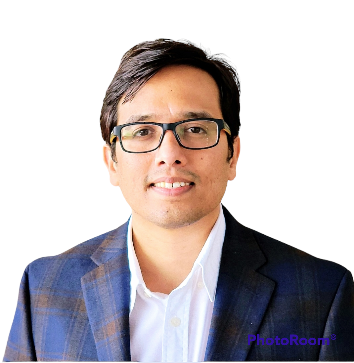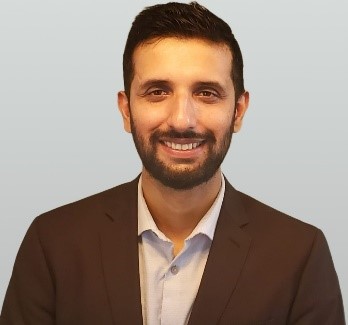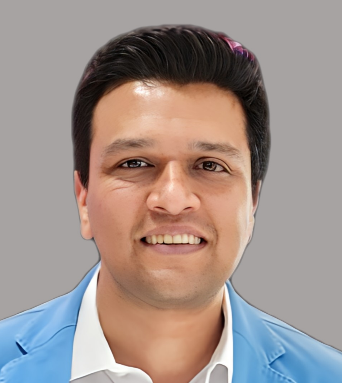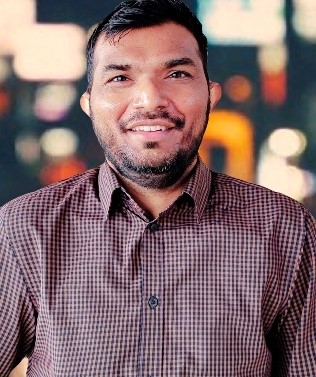Session Title: Responsible Innovation for Next-Generation AI Systems and Architectures
Organizer:

Dr. Anurag T is a results-driven product leader, bringing innovative products to market. He is a Senior Member of IEEE and received an M.S. degree in electrical engineering and a Ph.D. in computer networking and communication systems from the University of Missouri - Kansas City, MO, USA, respectively. He is the Inventor and author of 35+ patents, 16 published peer-reviewed research papers, and a Book chapter in Computer Networking, Communication Systems, 5G, IoT, Cloud Computing, and Cybersecurity. Over the past decade, he has worked with global organizations in wireless networks, telecom, cybersecurity, and emerging technologies. His research interests include machine learning applications in next-generation wireless communications, Cybersecurity, the Internet of Things, Cloud Security, and Cloud Computing. (Email – adtmv7@mail.umkc.edu)
Abstract: The unveiling of groundbreaking technologies such as ChatGPT, Bard, Claude, and other large language models (LLMs) has captured the attention of the global audience, highlighting the significant advancements in artificial intelligence (AI). These developments have underscored the importance of responsible AI - a principle that ensures AI technologies are developed, deployed, and utilized with ethical considerations and human trust at the forefront. Despite establishing AI ethics principles to guide responsible AI practices, there remains a pronounced disconnect between these high-level guidelines and their practical application. This gap underscores the challenges faced at every stage of AI system development, affecting AI and non-AI components and the data these systems utilize. This special issue seeks to bridge this gap by inviting contributions that present innovative technologies, groundbreaking studies, and forward-thinking developments. Our goal is to equip the community of researchers, developers, and policymakers with actionable strategies for the ethical engineering of AI systems, ensuring they are both responsible and trustworthy.
The main topics are related, but not limited to:
- Engineering Requirements for Ethical AI: Strategies and frameworks for designing AI systems that adhere to ethical guidelines from the outset.
- Architectural and Design Principles for Responsible AI: Innovative approaches to building AI systems that are inherently responsible and secure.
- Security and Privacy in AI: Cutting-edge cybersecurity and privacy solutions tailored for AI technologies.
- Assurance and Validation of Ethical AI: Methods and practices for verifying and validating the ethical integrity of AI systems.
- Operational Excellence in AI Development: Insights into DevOps, MLOps, MLSecOps, and LLMOps practices that reinforce responsible AI principles.
- The Human Dimension of AI Engineering: Explorations of how human values, ethics, and societal norms can be integrated into AI development processes.
- Tools and Governance for Responsible AI: Innovative assessment tools, techniques, and governance models that ensure ongoing ethical compliance and responsibility in AI.
- Trust and Reliability in AI Systems: Research establishing and maintaining trustworthiness in AI technologies.
- Next-Generation AI Systems: Perspectives on responsibly engineering foundational models, including those based on LLMs, for future technologies.
Importance: This special session on Responsible Innovation AI Systems is novel and timely, addressing the urgent need for ethical AI amidst rapid advancements in AI technologies. Relevant to the ICAII community, it aligns with innovation themes by focusing on ethical engineering, security, and trust, ensuring AI's development is both responsible and beneficial.EEE International, Conference Fuzzy Systems. She is also a member of several important IEEE CIS technical committees.
Industrial Talks:

Shyam Bhojwani has been leading IT, Automations, and Security Organizations for over 10+ years. He has built teams focused on seamless and secure Employee Experience with an automation-first mindset. He has led teams across different industries, from Wall Street Financial Tech Services, where he worked at Investment Technology Group (acquired by Virtu Financial Services), and later worked at the tech fitness eCommerce company Peloton Interactive Inc. He is an author and member of the Forbes Technical Council. He is the Director of Business Technology and Security Operations at Workato Inc., the integration automation platform. (Email - bhojwani.shyam@gmail.com)

Pratik Thantharate is a Principal Software Engineer and Researcher with over a decade of experience researching and developing solutions in Agile software development, Cybersecurity, AI, and DevOps. He specializes in continuous integration/continuous delivery, infrastructure as code, containerization, microservices, and end-to-end code to cloud security. He is the author of 6 published peer-reviewed research papers and served on the Technical Program Committee of more than 30 International Research and Industry Conferences. He aims to drive innovation in next-generation DevOps platforms and observability frameworks through innovative research and enable rapid and reliable software delivery. (Email -pthanth2@gmail.com)

Dr. Vijay Walunj is an engineering leader at Teladoc Health R&D. He received a Ph.D. in Software Analytics from the School of Computing and Engineering at the University Of Missouri Kansas City (UMKC) in 2022. His research interests include software engineering, software analytics, artificial intelligence, microservices, 5G, network slicing, and security. In his Ph.D. work, he applied AI to improve the effectiveness of various software engineering tasks and develop tools/frameworks for better AI software development. He has been working in software for over a decade and has written thousands of lines of code. At Teladoc, he leads the development of a revolutionary healthcare platform that connects providers with the Company's 55 million members globally.
